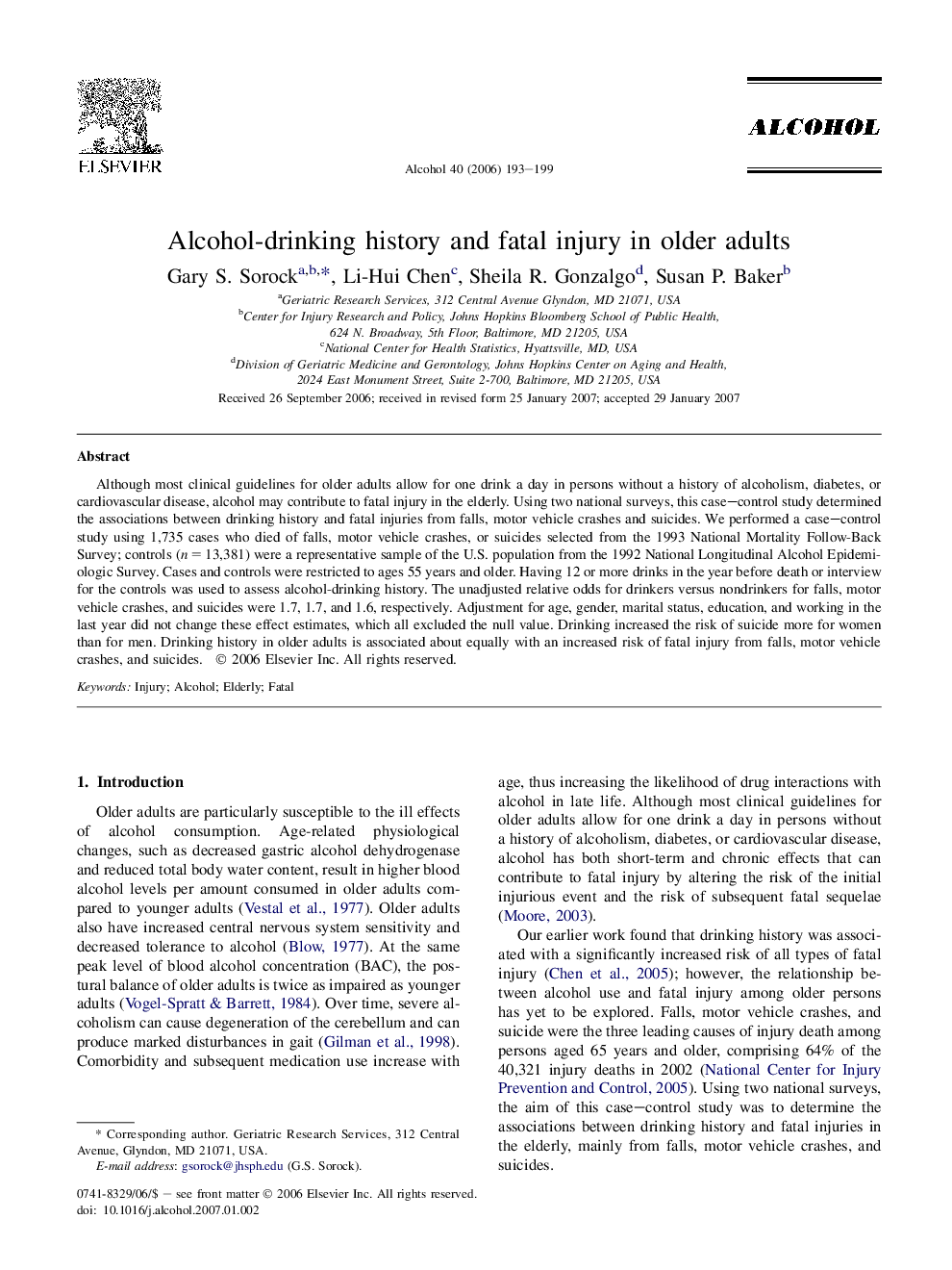| Article ID | Journal | Published Year | Pages | File Type |
|---|---|---|---|---|
| 1067519 | Alcohol | 2006 | 7 Pages |
Although most clinical guidelines for older adults allow for one drink a day in persons without a history of alcoholism, diabetes, or cardiovascular disease, alcohol may contribute to fatal injury in the elderly. Using two national surveys, this case–control study determined the associations between drinking history and fatal injuries from falls, motor vehicle crashes and suicides. We performed a case–control study using 1,735 cases who died of falls, motor vehicle crashes, or suicides selected from the 1993 National Mortality Follow-Back Survey; controls (n = 13,381) were a representative sample of the U.S. population from the 1992 National Longitudinal Alcohol Epidemiologic Survey. Cases and controls were restricted to ages 55 years and older. Having 12 or more drinks in the year before death or interview for the controls was used to assess alcohol-drinking history. The unadjusted relative odds for drinkers versus nondrinkers for falls, motor vehicle crashes, and suicides were 1.7, 1.7, and 1.6, respectively. Adjustment for age, gender, marital status, education, and working in the last year did not change these effect estimates, which all excluded the null value. Drinking increased the risk of suicide more for women than for men. Drinking history in older adults is associated about equally with an increased risk of fatal injury from falls, motor vehicle crashes, and suicides.
